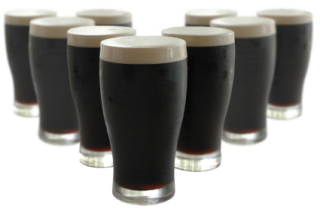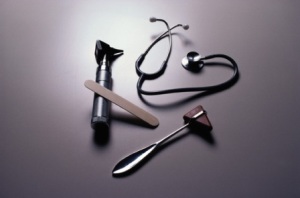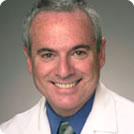Fulbright's Fantasy: How I Spent My Summer Minding The Gap
 Everyone has their own war. Like a lot of baby boomers, my war was Vietnam. I can remember sitting in a deadly silent fraternity house while birthdates and draft numbers scrolled by like some sort of life lottery.
Everyone has their own war. Like a lot of baby boomers, my war was Vietnam. I can remember sitting in a deadly silent fraternity house while birthdates and draft numbers scrolled by like some sort of life lottery.
Other memories, like people fleeing to Canada, the National Guard Game, the 2-S tango, still stick in my mind. I have vivid memories of the hearings held by the chairman of the Senate Foreign Relations Committee, J. William Fulbright, in 1966, questioning the wisdom of the war and our interventionalist polices. This was particularly ironic given that Fulbright was one of two Senate sponsors of the Gulf of Tonkin resolution just two years earlier.
Forty years later, like a lot of things that come full circle, I had the opportunity to spend the summer at Kings College London as one of the 280,000 other "Fulbrighter's" who have participated in the program since its inception in 1946.
The Fulbright Program is offered by the US State Dept as a global cultural and scientific exchange program. (http://www.cies.org). There are several types of Fulbright Scholarships. I was selected for the Senior Scholars program which is designed for faculty who want to spend between 2 and 6 weeks teaching and learning at a foreign host institution in their specialty discipline, like mine, bioentrepreneurship. Senior Scholars are eligible to do two tours in a 5 year period and this was my first.
The Senior Scholars application and acceptance process involves three steps. As the first step, you apply to be included on the Senior Scholars Roster. Following that, your availability is announced to potential host countries and they apply for your expertise. If there is a match, you are required to submit a program plan describing what you will do, when you will do it and what the expected outcomes and goals will be. And before you know it, you're on your way to a once-in -a-lifetime adventure.
The State Dept pays for your transportation and pays you a weekly stipend. Let me take this opportunity to thank all of you taxpayers. The host institution, in my case Kings Business, the technology commercialization office of Kings College London, pays for lodging, transportation in the country and a per diem meals allowance. That's why I stayed in the student dorms while I was there. Did I mention it had its own bathroom and was across the street from the Pig in the Poke pub?
I worked with about 35 technology transfer and business development managers under the tutelage of my sponsor, and now lifetime friend, George Murlewski, a former long term BP manager, who went to the ivory tower and took a crack at getting academics to understand how to create life science spin outs.
My days were spent networking, working with faculty and staff, lecturing, doing assessments and most weekends visiting other technology transfer programs in the UK including some in Glasgow, Edinburgh, Southampton, Oxford and Cambridge. I also spent some time at the London Business School and Imperial College. If you are ever in Deal on the East Coast of Kent, I highly recommend visiting the Hole in the Roof pub, run by the brother of the British Consulate in Denver.
I've been home several months now and continue to work with people I met, am collaborating with my faculty colleagues , and continuing to build the bridges that Fulbright envisioned when he created the program.
If you ever want to spend your senior year abroad, it's never too late and I highly recommend it. Cheers.
 Email This Article tagged:
Email This Article tagged:  Fullbright Program,
Fullbright Program,  Fullbright Scholarships,
Fullbright Scholarships,  Kings College London,
Kings College London,  London Business School and Imperial College |
London Business School and Imperial College |  Dec 11, 5:30 PM
Dec 11, 5:30 PM 






